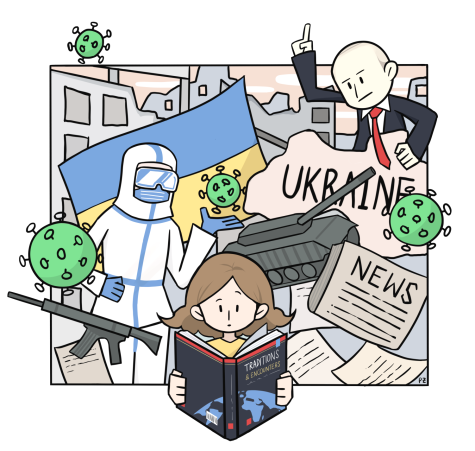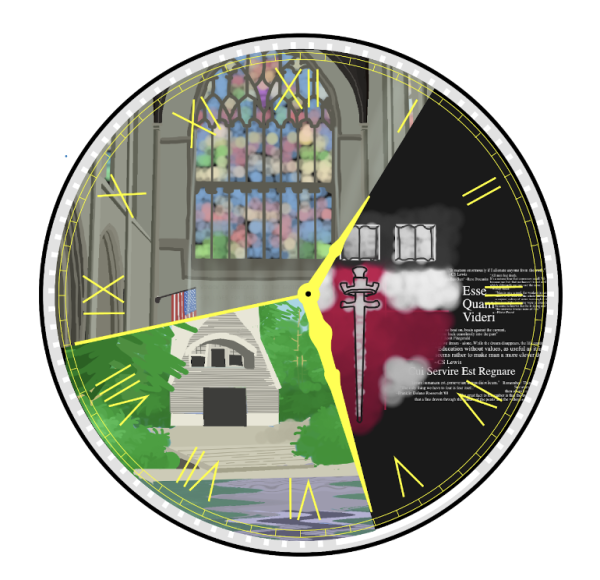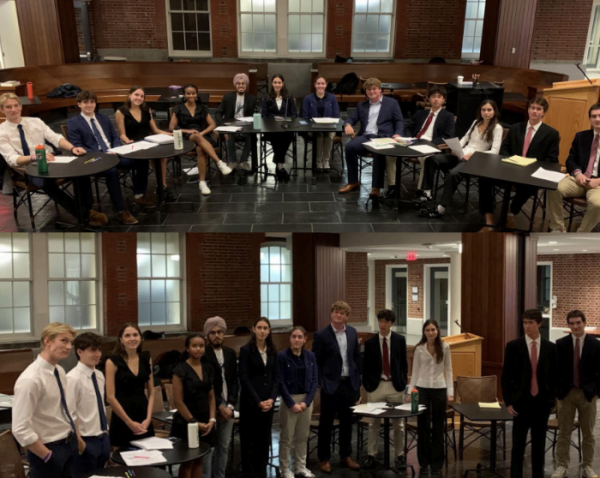A Shifting World History Curriculum: Adopting a Contemporary Lens
 History has always been one of the staple classes. Recounting the past in school differs dramatically depending on the country one lives in, and the country’s own history and politics. History, a subject that theoretically retells the past, is ironically a constantly evolving story especially as society embarks on a more objective, inclusive, and global manner of teaching history.
History has always been one of the staple classes. Recounting the past in school differs dramatically depending on the country one lives in, and the country’s own history and politics. History, a subject that theoretically retells the past, is ironically a constantly evolving story especially as society embarks on a more objective, inclusive, and global manner of teaching history.
At Groton, students are required to take “Modern Global History” their fourth or fifth form year—a class that “carries the human story forward from the year 1200 to the present,” according to the course catalog. Previously named “World and the West,” the title was changed to “reflect both the connections between the two courses (formerly Sacred Texts and World and the West) and our increasing focus on global citizenship.” explains Mr Spring. Beyond title change, this course has undergone tremendous changes since its initiation, and as history progresses alongside the year’s readings, discussions, and lessons, the question of how to incorporate daily news has recurred and changed our approach here at Groton.
Ms. Lamont explained that around 20 years ago, when the class met five times a week, one of the periods was dedicated to discussing current events At another point in time, students compiled monthly reports on current events and presented them in class. Among other factors, class time certainly influences the amount of connections teachers are able to make to modern news.
The textbook used in the course is the 2020 AP Updated 6th edition of “Tradition and Encounters: A Global Perspective on the Past.” However, Modern Global History at Groton is not strictly an AP course—rather it grounds itself as a skill-based class amidst the content covered. Two months of the year are spent writing research papers, a skill that is not always presented and taught at other World History classes across the nation. Research papers allow for incorporation of more modern news, and Ms. Lamont says she “hopes that students in their conclusions can speak about the relevance of whatever topic they have been discussing with today’s world.”
With limited class and homework time available, especially in the past three years due to Covid-initiated reforms, decisions have inevitably been made about how courses progress and what materials they cover. Curriculums have been narrowed down to courses’ direct educational objective. Many of the history electives offered, for example Racism and Genocide, International Relations, Sport and Society in World History Since 1945, Court and the Constitution: Individual Liberty and the Law, and Capitalism: A Global History, are deeply rooted in current events and naturally more of their class time is dedicated to current news than a year long course covering global history from 1200 to present course. Since the grand curriculum of “Modern Global News” is dictated by the history department and does not nominally include modern news lessons (since News cannot theoretically be pre-planned), it is up to teachers to make modern news a part of their classes. Today, there are no established guidelines on how teachers can incorporate everyday news into classes.
To history teacher Ms. Lamont, who has been at Groton for over twenty years, ignoring contemporary connections is impossible. “I cannot walk into class one day, and not acknowledge a terrorist attack or brutal racist incident, or a pandemic. I cannot ignore Covid-19 when we teach the Bubonic plague or the Spanish flu,” she stated. Mr. Spierer, another history teacher, echoed her sentiments. History is not just a chronology, it’s a web, and “what it is being a good history teacher, [is] making the material relevant…and global events have a way of encouraging us to do so,” he said. World History student Luisa Garciarramos Petriocioli ‘24 added, “if you live through it, you understand it better.”
Clearly, being able to connect news to historical events enriches a course; however, speaking about current events in classes about history can be a touchy subject. Teachers can be nervous to cover current events: it takes time away from established curricula, and framing news is a delicate conversation in the polarized political climate we live in.
However, understanding today’s news as it relates to history is a crucial skill. “The 20th century history we cover, in particular during the spring terms, has a way of always resonating with what’s going on that spring in global politics,” stated Mr. Spierer.
As students travel through history from the 13th century all the way to modern day, the history they cover starts to align with the news that has happened during their lifetime of news-reading.
Especially today with the war in Ukraine, understanding the roots of this intensifying conflict is essential for our generation. To some students, this class is the first time they are learning about the European perspective during WWII, Russian power dynamics, and connections between the industrial revolution and the Internet age. Contextualizing the headlines that flash before students today is hard but can help make life-long valuable connections: “it helps students feel like they are part of history rather than learning about the past,” says Sydney Senerchia ‘24.
First introduced to the American Historical Association in 2000, “Reverse Chronology” is a teaching initiative that entails teaching history backwards. The unique teaching style, which has been employed by history teacher Ms. Lamont in her Soviet Union elective, offers students a more relatable and empirical perspective of content. As we see the world around us change at an unprecedented rate, educators have worked to identify the common ground to incorporate both ancient history and significant current events. How can these two unavoidable agendas coexist? Should there be a global events elective instead? While many questions arise, it is evident that modern news should continue to and will continue to be actively discussed in classes and contextualized throughout high school historical studies.




